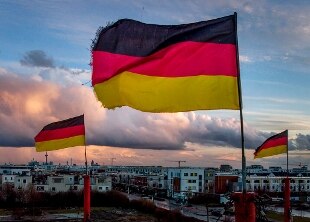Frankfurt, Germany, elections (AP Photo / Michael Probst)
Angela Merkel: Germany reopens, with caution
Merkel: "Last wishes for the end of the year as Chancellor"
Germany, Angela Merkel's mea culpa: "The second lockdown is too late"
Pfizer vaccine: agreements on production sites in Germany and Switzerland
Maxi operation against a far-right network in Germany
Covid, Locatelli: after Germany and with France we are the country that has had more vaccinations
Share
March 14, 2021 Urns open in the two German Laender of Baden-Wuerttemberg and Rhineland-Palatinate, a very important test that opens a long electoral year that will culminate on September 26 with the political elections, the first in 16 years without Chancellor Angela Merkel at the helm of the conservatives.
It is precisely the Christian Democrats of the CDU / CSU who risk being defeated by the vote.
To the intolerance of public opinion for the slowness of the vaccination campaign was added the indignation for the cases of corruption that caused the resignation of three Bundestag deputies in a few weeks, two accused of having profited from the supply of masks and one ended up being targeted for lobbying in favor of Azerbaijan.
In Baden Wuerttemberg, located in the South West of the country, with 7.6 million voters, the latest polls indicate a comfortable re-election for Winfried Kretschmann, 72, the only member of the Greens at the head of a regional government, in an anomalous green-black coalition with the same CDU.
In Rhineland Palatinate, a western region with 3.1 million voters, 60-year-old Social Democrat Malu Dreyer has two points of advantage over the CDU candidate, according to German television Zdf.
Other polls speak of a 4-point lead.
Dreyer leads a coalition of Greens and Liberals in a federal state where, at the regional level, the Social Democrats have a long tradition of victories.
The authorities have put in place extraordinary hygiene measures to prevent gatherings and contagion at the polling stations.
Strict measures will be taken in the polling stations and in the premises used for the final counting of the ballots.
Journalists will also have to undergo rapid tests to access and closely follow each phase of the election day.
A sharp increase in voting by mail is expected, which could reach as much as 50% of the total number of voters.
Rhineland Palatinate has an incidence well below the national average: 53 positive tests in seven days per 100,000 inhabitants, compared to 76.1 in the whole of Germany.
In Baden Wurttemberg, which for months was among the most affected Laender, the weekly incidence is 69 positive per 100 thousand inhabitants.

